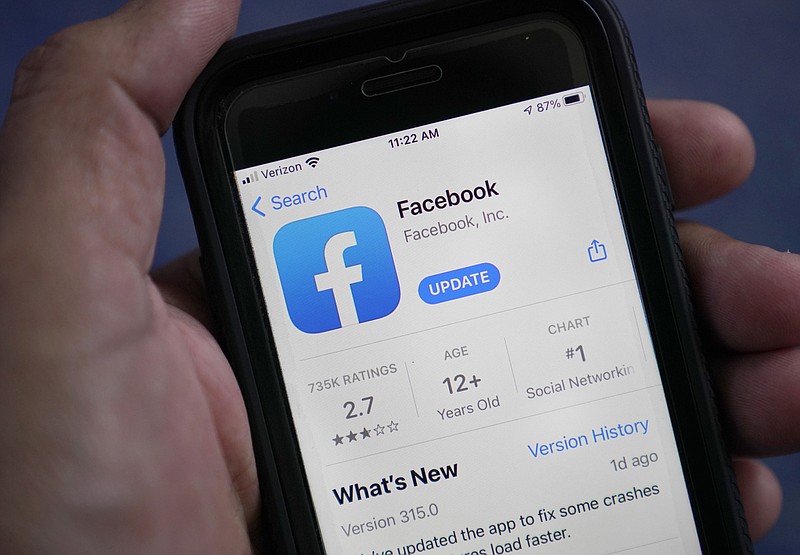LONDON -- European Union and British regulators opened dual antitrust investigations Friday into whether Facebook distorts competition in the classified advertising market by using data to compete unfairly against rival services.
German officials, meanwhile, began a fresh investigation of Google using stepped up powers to scrutinize digital giants.
The multiple investigations represent the latest escalation by European regulators in their battle to rein in the dominance of big American tech companies. The focus of the EU and U.K. investigations highlights a longstanding concern that the data the companies collect from people or businesses with their platforms is used to get an advantage over competitors, which could include those same businesses.
"Facebook collects vast troves of data on the activities of users of its social network and beyond, enabling it to target specific customer groups," said Margrethe Vestager, the European Commission's executive vice president in charge of competition policy. "We will look in detail at whether this data gives Facebook an undue competitive advantage, in particular on the online classified ads sector, where people buy and sell goods every day, and where Facebook also competes with companies from which it collects data."
The U.K.'s Competition and Markets Authority said in a simultaneous announcement that it started its own investigation to examine whether Facebook's collection and use of data gave it an unfair advantage over competitors providing classified data and online dating services.
Facebook said it "will continue to cooperate fully with the investigations to demonstrate that they are without merit."
Marketplace, Facebook's classified ad service, and Facebook Dating "offer people more choices and both products operate in a highly competitive environment with many large incumbents," the company said in a statement.
The EU's executive commission, the bloc's top antitrust enforcer, is looking at the possibility that Facebook collects data on what users are interested in based on how rival classified ad sites are advertising their services to Facebook users. The commission is worried Facebook then uses that data to tailor Marketplace to outcompete the rival sites.
It's also looking at whether the way Marketplace is embedded into the social network gives Facebook an advantage in reaching customers and shutting out competing sites, in violation of EU competition rules.
The U.K.'s competition watchdog is pursuing its own investigation, which includes examining whether data from Facebook Login was unfairly used. The feature lets users sign in to other websites, apps and services with their Facebook credentials, making it a potentially big source of information on users' interests.
"We intend to thoroughly investigate Facebook's use of data to assess whether its business practices are giving it an unfair advantage in the online dating and classified ad sectors," Andrea Coscelli, chief executive of the Competition and Markets Authority, said in a press statement.
PENALTIES POSSIBLE
The EU and U.K. investigations could result in formal charges, but it's not a given. Regulators have the power to impose penalties worth up to 10% of a company's annual revenue, which in Facebook's case would amount to billions of dollars.
A preliminary investigation had already been underway, with the European Commission sending questions to Facebook's rivals. Last year, Facebook sued the commission over demands made by regulators to turn over documents and data, saying the materials sought were overly broad and included highly sensitive information about employees. Facebook said it provided more than 1 million documents related to the Marketplace investigation.
The European investigations into Facebook open a new flank for the social media giant. Last year, the Federal Trade Commission and nearly every U.S. state accused the company of using mergers to squeeze out competition and create a monopoly.
"These inquiries into Facebook address different areas, and today's actions underscore that concern with tech platforms is worldwide and not going away," said Michael Kades, the director of markets and competition policy for the Washington Center for Equitable Growth, a center that researches the causes and effects of inequality.
GOOGLE SCRUTINIZED
Also Friday, Germany's competition watchdog, which has gained new powers to use on digital companies, opened its latest investigation of Google. The Federal Cartel Office, or Bundeskartellamt, said it is examining whether Google's News Showcase, a licensing platform for publishers launched last fall, includes "unreasonable conditions" in contracts for news publishers.
The federal office is also looking at whether search results give preference to publishers using the platform at the expense of others that haven't been signed up.
Google denied giving preference to news partners and said it is cooperating with the German watchdog agency.
Other U.S. tech giants already faced intensifying scrutiny in Europe over their business practices. Officials in Brussels have charged Apple with stifling competition in music streaming and accused Amazon of using data from independent merchants to unfairly compete against them with its own products.
Information for this article was contributed by Kelvin Chan of The Associated Press and by Adam Satariano of The New York Times.
